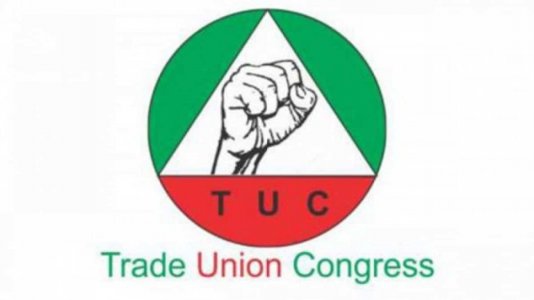
TUC's Ultimatum Shakes Nigeria's Oil Sector: Workers Demand Clarity Amid Ownership Transition
In a seismic development that has sent shockwaves through Nigeria's oil industry, the Trade Union Congress (TUC) has issued a stern ultimatum to the Nigerian National Petroleum Company Limited (NNPCL) and the Nigerian Agip Oil Company (NAOC). The TUC, led by President Comrade Festus Usifo, has threatened to shutter all oil field locations in the country unless their ongoing discussions yield favorable outcomes.
The root of this escalating tension lies in the recent acquisition deal between Oando PLC and ENI, an Italian multinational energy company. Oando PLC announced its agreement on September 4 to acquire 100 percent of the shares of Nigerian AGIP Oil Company Limited. This transition of ownership has raised grave concerns about the future of Nigerian workers within Agip Company.
Comrade Festus Usifo, representing the TUC, insists that due process must be followed during this critical transition. The TUC firmly opposes the idea of transferring its members to Oando PLC without a clear development plan that safeguards the interests of workers who have devoted decades to Agip Company.
Usifo's concerns are multi-faceted. First, he questions Oando's financial capability to shoulder the obligations incurred by Agip, including pensions and gratuities owed to long-serving employees. Second, he seeks transparency regarding Oando's development plans, as the future of the workforce hinges on the company's stability and growth.
Usifo emphasizes that Oando PLC cannot match the financial might of International Oil Companies (IOCs) that previously managed these assets. The IOCs injected substantial finances into operations, ensuring sustained production. The impending challenge is whether Oando can maintain the same level of operational excellence.
The heart of the issue lies in the future of the oil field locations and the workers who operate them. Usifo argues that bringing in dissatisfied employees to manage these assets would be counterproductive. To resolve this standoff, he calls for meaningful dialogue between Agip and the workers' representatives.
However, the TUC has made it clear that should these discussions fail to yield favorable results, they are prepared to take drastic action, including withdrawing their members from the oil field locations. As it stands, the TUC is engaged in intense consultations and discussions with Agip management to seek a mutually acceptable resolution.
In parallel, members of the Petroleum and Natural Gas Senior Staff Association of Nigeria (PENGASSAN) within Agip have resorted to prayer sessions. These sessions are aimed at seeking divine intervention and garnering support from the Federal Government and relevant agencies to ensure the protection of workers' interests during this tumultuous transition.
As this high-stakes confrontation unfolds, Nigeria's oil sector is on tenterhooks, with the fate of countless workers and the stability of the industry hanging in the balance.




